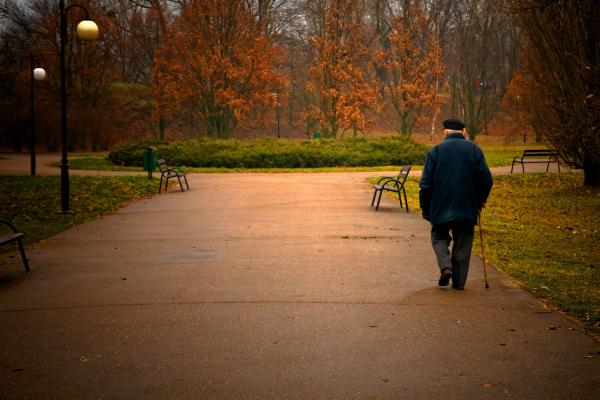IN NOVEMBER I had the honor of delivering the first annual Henri Nouwen lecture at the University of Toronto. I was invited by the Henri Nouwen Society to speak about the connection between spirituality and social justice and to offer reflections about a remarkable man and the Sojourners community’s relationship with him.
Henri Nouwen was a deeply spiritual and deeply human man whose life and work has inspired many of us in the extended Sojourners community for the last four decades. Our relationship with Nouwen goes back to the 1970s, when he often came to visit our budding community in Washington, D.C. As young firebrands with a passion for social justice, we learned much from Nouwen, who helped teach us the importance of a deep, authentic, contemplative spirituality, which we knew we needed to undergird the hard battles for social justice. Nouwen often shared with us that Sojourners, in turn, helped push him to not lose sight of the urgent struggles for justice and peace in the midst of his efforts to help people unlock a deeper spirituality.
What drew Nouwen to Sojourners, and us to him, was our common conviction that contemplative spirituality, which was his passion and vocation, had to be deeply connected to putting faith into action for justice in the world, which was ours. We spoke together about the dangers of people pursuing spirituality in a consumer culture, where resources aimed at the inner life could become just another commodity.
But we also talked of how activism for justice without a deepening inner life could so easily lead to burnout, despair, and cynicism. Conversations with Nouwen were often about the dynamic relationship between the life of the spirit and our life in the world, which often lived in real tension and called us all to a deeper and more integral faith.
I ESPECIALLY REMEMBER one visit Nouwen made to Sojourners that encapsulates this relationship and tension between spirituality and social justice. On this weekend, Brazilian Archbishop Hélder Câmara was in town to speak to a large church convention in a downtown hotel.
Dom Hélder’s aides called to say that he felt “uncomfortable” in the big, fancy hotel and wanted to spend the afternoon in a “base community” like Sojourners. We were thrilled, so I hurried across town to pick him up. Together we walked through our poor and violent neighborhood, and I remember how comfortable and familiar with such streets the Catholic archbishop seemed to be.
The community quickly gathered, and because Nouwen also happened to be visiting us that weekend, the next several hours were some of the most memorable in our history. The highlight was the dialogue between Nouwen and Dom Hélder. The Dutch priest from the First World was relentless with questions for the Third World liberation archbishop. Nouwen could easily see the deep spiritual life of our other guest, which was so powerfully lived out in the world of poverty and injustice that was his parish.
Nouwen’s hunger and thirst for spiritual truth were never satisfied, and that afternoon was no exception. For a contemplative writer, Nouwen was not a placid man. His mind and heart were always probing, pushing further and further. That day, he seemed to sense that there were truths he would never find in the affluent First World, that his search would have to continue among the despised and rejected of the Third World.
In fact, Nouwen would later leave the academic cocoon of Yale to make a pilgrimage to Latin America—which I believe was at least partly motivated by the conversation he had with Dom Hélder that day. I also believe Henri Nouwen would have deeply responded to the visit of Pope Francis to the United States this fall, as so many of us did.
The intensity of his spiritual search was Nouwen’s most remarkable quality. We spent countless hours together talking, walking, and very often anguishing about the deepest questions of his own life and faith. I remember the very personal and vulnerable conversations I had with Nouwen, a man who wrote about the importance of being a “wounded healer.”
Henri Nouwen was not a Christian who had it all figured out. On the contrary, Nouwen wrestled like Jacob with the God he so dearly loved. And that made him wrestle with all of us too. Nouwen leaves us with a rich liturgy and library of spiritual struggle.
In a world where social justice is too often bereft of spirituality, and where spiritual contemplation too often causes people to isolate themselves from the urgent problems of society, Henri Nouwen’s life provides a needed example of how to encounter and incorporate both into one’s life and work.

Got something to say about what you're reading? We value your feedback!

